Restoring a butcher block countertop can breathe new life into your kitchen and extend the lifespan of this timeless and versatile surface. Butcher block countertops are prized for their warmth, durability, and natural beauty, making them a popular choice for both traditional and modern kitchen designs. Over time, however, butcher block countertops can become worn, stained, or damaged due to regular use and exposure to moisture. Here’s a comprehensive guide on how to restore a butcher block countertop to its former glory:
Assess the Condition: Before beginning the restoration process, assess the condition of the butcher block countertop. Look for signs of wear, scratches, stains, and water damage. Determine if any repairs or refinishing are needed to restore the countertop to its original condition.
Clean the Surface: Start by thoroughly cleaning the butcher block countertop to remove dirt, grease, and food residue. Use a mild detergent or a mixture of warm water and vinegar to clean the surface, and scrub gently with a sponge or soft brush. Rinse the countertop with clean water and dry it thoroughly with a towel.
Remove Stains: If the butcher block countertop has stains or discoloration, try removing them using a gentle abrasive such as baking soda or a paste made from hydrogen peroxide and baking soda. Apply the abrasive to the stained area, scrub gently with a soft brush, and rinse thoroughly with water.
Sand the Surface: Once the countertop is clean and dry, sand the surface to remove any surface imperfections, scratches, or rough spots. Start with coarse-grit sandpaper (such as 80 or 100 grit) to remove the top layer of wood and any stubborn stains or scratches. Then, switch to a finer-grit sandpaper (such as 120 or 150 grit) to smooth the surface and remove any remaining scratches.

Round the Edges: If desired, use sandpaper or a router with a round-over bit to round the edges of the butcher block countertop. Rounded edges not only enhance the appearance of the countertop but also make it more comfortable to use.
Apply Butcher Block Oil: Once the surface is sanded smooth, apply a generous coat of butcher block oil or food-safe mineral oil to the entire countertop surface, including the edges. Use a clean cloth or brush to spread the oil evenly, making sure to cover the entire surface. Allow the oil to penetrate the wood for several hours or overnight.
Repeat Oil Application: Depending on the condition of the butcher block countertop, you may need to apply multiple coats of oil to achieve the desired level of protection and sheen. Apply additional coats of oil as needed, allowing each coat to penetrate the wood before applying the next coat.
Wipe Off Excess Oil: After allowing the oil to penetrate the wood, wipe off any excess oil from the surface of the butcher block countertop using a clean, dry cloth. This helps prevent the countertop from feeling greasy and ensures an even finish.

Allow to Cure: Once the oil has been applied and excess oil has been wiped off, allow the butcher block countertop to cure for at least 24 hours before using it. During this time, avoid placing any objects or items on the countertop to allow the oil to fully absorb into the wood.
Maintain Regularly: To keep your butcher block countertop looking its best, maintain it regularly by cleaning it with mild soap and water after each use and reapplying butcher block oil or mineral oil every few months or as needed. This helps protect the wood from moisture, stains, and scratches and maintains its natural beauty.
Repair Damage: If the butcher block countertop has more significant damage, such as deep scratches, gouges, or water damage, consider repairing it before refinishing. Minor scratches can be sanded out, while deeper gouges may require filling with wood filler and sanding smooth.
Refinish if Necessary: If the butcher block countertop is heavily worn or damaged and oiling alone does not restore its appearance, consider refinishing the surface. This may involve sanding the entire surface to remove the old finish and then applying a new finish such as oil, varnish, or polyurethane.
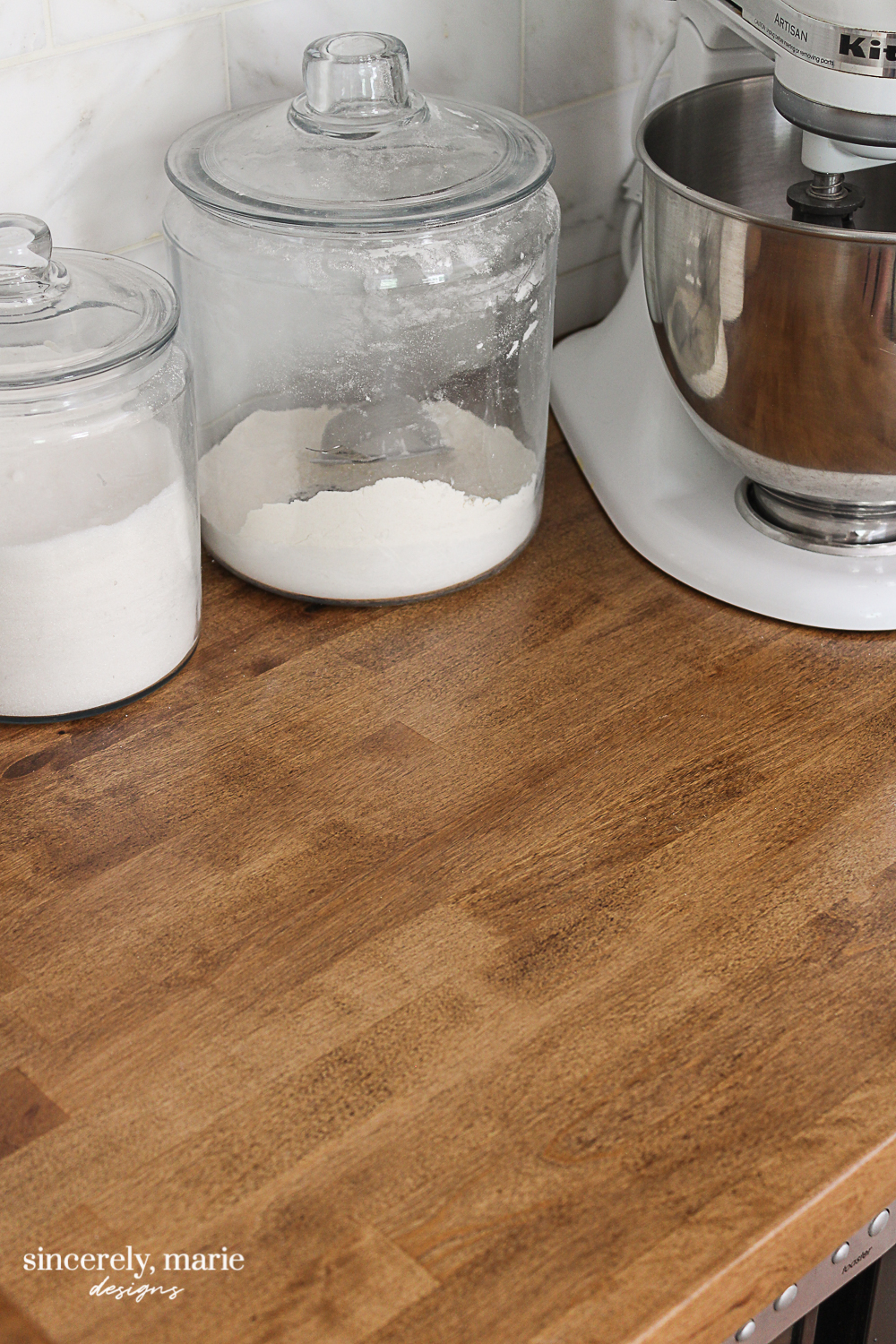
Seal the Underside: To prevent warping or moisture damage, seal the underside of the butcher block countertop with a moisture-resistant sealer or finish. This helps protect the wood from moisture absorption and prolongs the lifespan of the countertop.
Preventative Measures: To maintain the beauty and durability of your butcher block countertop, take preventative measures such as using cutting boards and trivets to protect the surface from scratches and heat damage, wiping up spills promptly, and avoiding prolonged exposure to moisture.
Professional Refinishing: If you’re unsure about restoring or refinishing your butcher block countertop yourself, consider hiring a professional woodworker or refinishing expert to assess the condition of the countertop and perform the necessary repairs and refinishing.
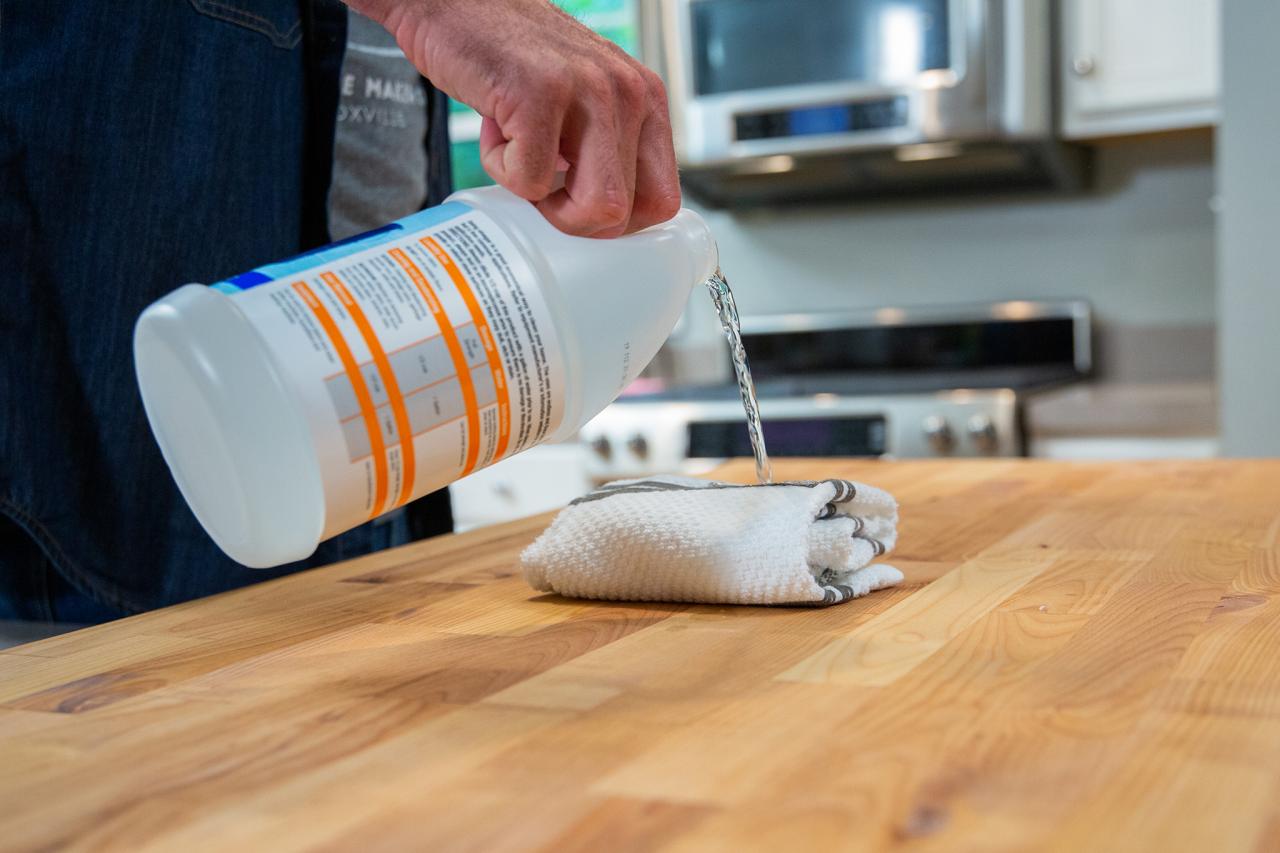
How often should I oil my butcher block countertop?
It’s recommended to oil your butcher block countertop every 1-3 months or as needed, depending on usage and exposure to moisture. Regular oiling helps protect the wood from drying out, prevents stains, and maintains the countertop’s natural beauty.
Can I use any type of oil to finish my butcher block countertop?
It’s essential to use food-safe oils such as butcher block oil or mineral oil to finish your butcher block countertop. These oils are safe for contact with food and provide excellent protection for the wood surface.
How do I know when it’s time to refinish my butcher block countertop?
Signs that it’s time to refinish your butcher block countertop include deep scratches, gouges, water damage, or a worn or faded finish. If regular cleaning and oiling no longer restore the countertop’s appearance, refinishing may be necessary to rejuvenate the surface.
Can I use bleach or harsh chemicals to clean my butcher block countertop?
It’s not recommended to use bleach or harsh chemicals to clean butcher block countertops, as they can damage the wood and strip away the protective finish. Instead, use mild soap and water or a mixture of vinegar and water for regular cleaning.
How can I prevent my butcher block countertop from warping?
To prevent warping, avoid prolonged exposure to moisture and humidity by wiping up spills promptly, using cutting boards and trivets to protect the surface from heat and scratches, and sealing the underside of the countertop with a moisture-resistant sealer or finish.

How to Clean Butcher-Block Countertops
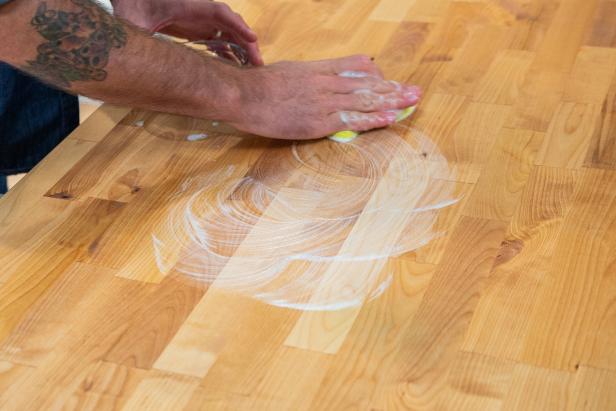
How To Refinish Butcher Block Countertops – Sincerely, Marie Designs
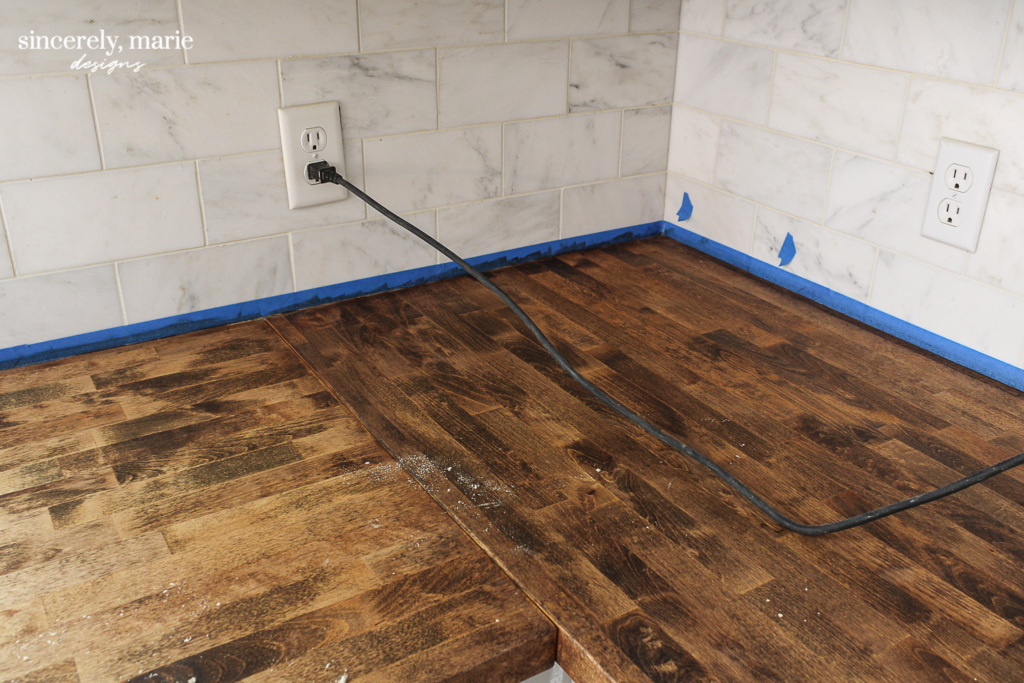
The complete guide to maintaining butcher block countertops.
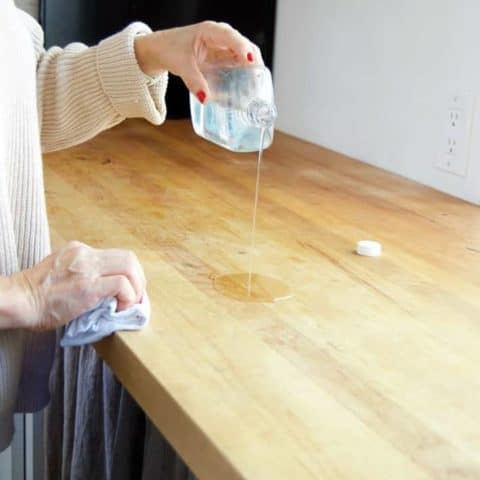
How We Refinished our Butcher block Countertop – Chris Loves Julia

How to Care for Butcher Block Countertops Butcher block

Related articles:
- Island Butcher Block Countertops
- How To Care For Butcher Block Countertops
- DIY Butcher Block Countertops
- Farmhouse Butcher Block Countertops
- Kitchen Designs With Butcher Block Countertops
- Sanding Butcher Block Countertops
- Butcher Block Countertops With White Cabinets
- Build Your Own Butcher Block Countertop
- Butcher Block Countertop With Tile Backsplash
- How To Stain Butcher Block Countertops